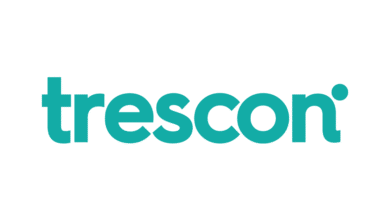
Breaking Molds and Meeting Demands: A Closer Look at Entrepreneurial Strategies for Today’s Dubai Property Market.
The real estate market in the UAE has undergone significant changes in recent years, with Dubai being one of the most dynamic and fast-growing cities. As a major hub for business and tourism, it has attracted investors from around the world to invest in its booming property market. However, with changing consumer behavior and preferences, entrepreneurs in this industry are facing new challenges and opportunities.
Consumer behavior plays a crucial role in shaping the real estate market as people’s needs and preferences constantly evolve. With advancements in technology, economic factors, and demographic shifts, consumers are becoming more informed and demanding when it comes to buying or renting properties. This article aims to explore how entrepreneurial strategies are adapting to these changes and meeting the demands of today’s Dubai property market.
Understanding the Evolving Consumer Behavior and Preferences
Demographic changes and shifts in preferences have played a significant role in shaping the real estate market in Dubai. As the city continues to attract a diverse population, entrepreneurs need to understand their target audience’s changing demographics and preferences. For instance, younger generations are now entering the property market with different expectations compared to previous generations. They prioritize convenience, technology, and sustainability when choosing a property, which has led developers to incorporate these features into their projects.
The rise of technology has also had a profound impact on consumer behavior in the UAE’s real estate market. With access to information at their fingertips, consumers can easily research properties online before making any purchasing decisions. This has pushed entrepreneurs in this industry to adopt digital marketing strategies and provide virtual tours of properties for potential buyers or renters.
Moreover, economic factors such as fluctuating oil prices and global currency exchange rates have affected consumer decision-making in the Dubai property market. These external factors can influence housing demand and supply, ultimately impacting property prices. Entrepreneurs must carefully analyze these economic trends and adapt their strategies accordingly to remain competitive.
To meet the demands of today’s consumers, entrepreneurial strategies have shifted towards offering more value-added services beyond just buying or renting properties. For example, some developers offer flexible payment plans or rental options that cater to individuals with varying financial capabilities.
Thus, understanding evolving consumer behavior is crucial for success in Dubai’s rapidly growing real estate market. Entrepreneurs need to stay updated on demographic changes, technological advancements, and economic conditions while adapting their strategies accordingly will allow them to thrive in this competitive industry.
How Entrepreneurs are Adapting to These Changes
In addition to embracing technology, entrepreneurs in the real estate industry are also offering customized solutions to meet changing preferences of consumers. This includes catering to the increasing demand for sustainable and eco-friendly properties. With growing awareness about climate change and environmental sustainability, more individuals are looking for properties that align with their values. As a result, developers are incorporating green building practices into their projects, such as using renewable energy sources and implementing energy-efficient designs.
Another way entrepreneurs are adapting to changing consumer behavior is by pivoting towards new and emerging markets in the real estate industry. For instance, there has been a rise in co-living spaces in Dubai as young professionals and expats look for affordable housing options without compromising on quality or location. Co-living spaces offer shared living areas while still providing private bedrooms, making them an appealing option for individuals seeking community living.
Furthermore, with the growth of remote work due to the recent pandemic, entrepreneurs have started offering flexible workspaces within residential communities or mixed-use developments. This caters to people’s desire for a better work-life balance and convenience of having office space close to home.
Entrepreneurs are also leveraging data analytics tools to gain insights into consumer behavior patterns and make informed decisions on property development strategies. By understanding what features or amenities consumers value most when purchasing or renting properties, developers can tailor their offerings accordingly.
Moreover,
The COVID-19 pandemic has brought significant challenges but has also presented opportunities for entrepreneurial innovation in the real estate market. With social distancing measures implemented globally and travel restrictions imposed during lockdowns, virtual property viewings became a popular trend among buyers and renters alike. Entrepreneurs have quickly adapted by investing in virtual reality technology that allows potential clients from anywhere around the world to experience properties remotely before making any commitments.
Entrepreneurial strategies continue to evolve alongside changes in consumer behavior in Dubai’s dynamic real estate market.
By embracing technology advancements, sustainability practices, and catering to the needs of new and emerging markets, entrepreneurs are staying competitive and meeting the increasing demands of today’s Dubai property market.
Successful Strategies Employed by Entrepreneurs
Another successful strategy employed by entrepreneurs in the real estate market is collaborating with industry experts and influencers. These partnerships can bring valuable insights, expertise, and credibility to a project. For instance, partnering with architects or interior designers known for their innovative designs can add value to a property development and attract potential buyers.
Furthermore, building a strong online presence and utilizing digital marketing has become essential for entrepreneurs in the real estate industry. With most consumers starting their property search online, having an attractive website and active social media presence is crucial for reaching potential clients. Additionally, digital marketing strategies such as targeted advertisements can help businesses reach specific demographics or individuals interested in particular types of properties.
Moreover, maintaining good relationships with previous clients is also a successful entrepreneurial strategy in the real estate market. Satisfied customers are likely to refer friends and family to developers if they had a positive experience working with them previously. This word-of-mouth marketing can be highly effective as people tend to trust recommendations from people they know.
Lastly, staying updated on government regulations and policies related to the real estate market is crucial for success as an entrepreneur. In Dubai’s constantly evolving landscape, keeping up-to-date with changes in laws or incentives offered by authorities can give businesses a competitive edge.
Entrepreneurs who understand changing consumer behavior trends while leveraging technology advancements, digital marketing, and collaborations are more likely to succeed in Dubai’s dynamic real estate market.
By continuously adapting their strategies according to these factors while also considering economic conditions, government regulations, and feedback from previous clients,
Entrepreneurs will be able to thrive even amidst challenges posed by unforeseen circumstances like COVID pandemic.
Overall, this ever-evolving approach towards entrepreneurship will continue shaping the future of Dubai’s booming real estate industry.
Challenges Faced by Entrepreneurs in Adapting to Changing Consumer Behavior
One of the biggest challenges entrepreneurs faces in adapting to changing consumer behavior is a lack of awareness or resistance to innovations. This can be particularly true for more traditional real estate developers who may not see the value in incorporating technology or sustainability into their projects. It takes time and effort to educate stakeholders and convince them of the benefits these changes can bring, which can hinder progress.
Financial constraints are another significant hurdle faced by entrepreneurs looking to adapt to changing consumer behavior. Embracing technology, investing in sustainable practices, and offering value-added services often require significant investments. However, many entrepreneurs may struggle with securing the necessary funds or balancing these expenses with other business needs.
Moreover, Dubai’s competitive real estate market adds pressure on entrepreneurs looking to stand out from their competitors. Keeping up with industry trends and continuously evolving strategies is crucial for survival in this dynamic landscape. Failure to do so could result in losing potential clients and ultimately falling behind competitors.
In addition, as consumer preferences continue shifting rapidly due to external factors such as economic conditions or global events like COVID-19, it becomes challenging for entrepreneurs to anticipate future trends accurately. This uncertainty makes it difficult for businesses to plan long-term strategies effectively.
Adapting strategies according to changing consumer behavior requires constant monitoring and flexibility from entrepreneurs.
This can be challenging when dealing with multiple ongoing projects simultaneously.
It also requires effective communication within a company’s team members
And agility in adjusting plans if needed based on feedback from clients or market research findings.
Another challenge that arises when adapting entrepreneurial strategies according to changing consumer behavior is managing expectations while still meeting business goals.
Entrepreneurs must balance providing what consumers want while ensuring profitability and return on investment.
This delicate balance between meeting customer demands without compromising financial success requires careful planning, Strategic decision-making, and risk assessment skills.
Cultural differences among consumers also present challenges for entrepreneurship in Dubai’s real estate market.
Dubai attracts a diverse population from various countries, each with unique preferences and expectations.
In conclusion, adapting to changing consumer behavior is crucial for entrepreneurs looking to succeed in the dynamic real estate market of Dubai. By understanding and responding to shifting trends, embracing technology and sustainability practices, catering to new markets, and leveraging data analytics tools, entrepreneurs can stay competitive and meet the evolving needs of consumers.
Looking ahead, the future outlook for the UAE real estate market remains positive despite challenges posed by external factors such as economic conditions or global events. With a growing population and increasing demand for affordable housing options in prime locations, there are still ample opportunities for entrepreneurial innovation in this sector.
One trend that is likely to continue shaping the market is the focus on sustainable development. As consumers become more environmentally conscious, they will increasingly demand properties that incorporate green building practices. This presents an opportunity for entrepreneurs who prioritize sustainability in their projects to attract environmentally minded buyers or renters.
Furthermore,
The use of emerging technologies such as virtual reality will likely become more prevalent in property sales and rentals.
This allows potential clients from anywhere around the world to experience properties remotely without having to travel physically.
As remote work continues even after pandemic restrictions ease,
this could also lead to a rise in co-living spaces within residential communities
As individuals seek convenient access to office spaces close to home.
Moreover,
Collaborations between industry experts and influencers are expected to increase as developers look for ways to differentiate their projects from competitors.
These partnerships bring valuable insights and expertise while also adding credibility
And attracting potential buyers through word-of-mouth marketing.
In terms of challenges faced by entrepreneurs,
It will be essential for businesses not only to adapt but also manage expectations while maintaining profitability.
With advancements in technology comes higher costs,
So, it’s crucial for entrepreneurs to always be mindful of financial constraints when implementing changes into their strategies.
Overall, the future success of entrepreneurship in Dubai’s real estate market will depend on how well businesses can balance meeting consumer demands with maintaining business goals while keeping up-to-date with industry trends and government regulations.






